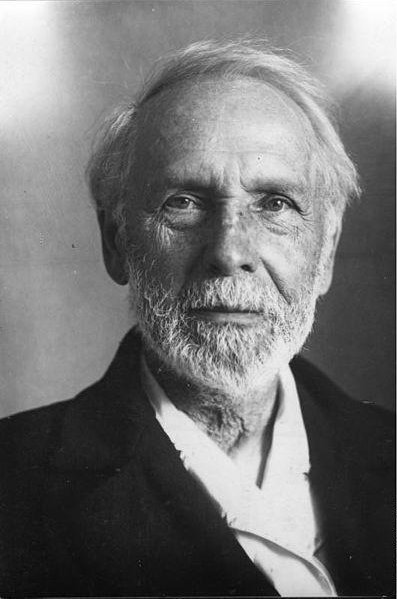
Alfred Vierkandt (4 June 1867 - 24 April 1953)
Born in Hamburg, he studied physics, mathematics, geography and philosophy in Leipzig. There he completed his doctorate in 1892. In 1894 he started work on his professor title in geography, but changed to ethnology in Berlin in 1900. He was one of the co-founders of the German Sociological Association in 1910. From 1913 he taught as a professor in Berlin, where he also received his professorship of sociology in 1921. The first German-language “Concise Dictionary of Sociology” was released in 1931 under his direction. In 1934 he was forced to retire by the National Socialists but he resumed teaching at the Humboldt University in Berlin in 1946. Based on his ethnological knowledge, Vierkandt’s choice of a research focal point in sociology lay in the field of sociology of culture and behaviour theory. This tendency has been further reinforced by the imitation of Husserl’s phenomenology since the mid 20’s. There are a number of annotated volumes of his works from his reference library, proofs from his essay on “The Developmental Psychological Theory of Magic” from 1937 with hand-written corrections, as well as the unpublished manuscript “Instinctual Life and Culture” (typescript with hand-written amendments) available in the Archive.
